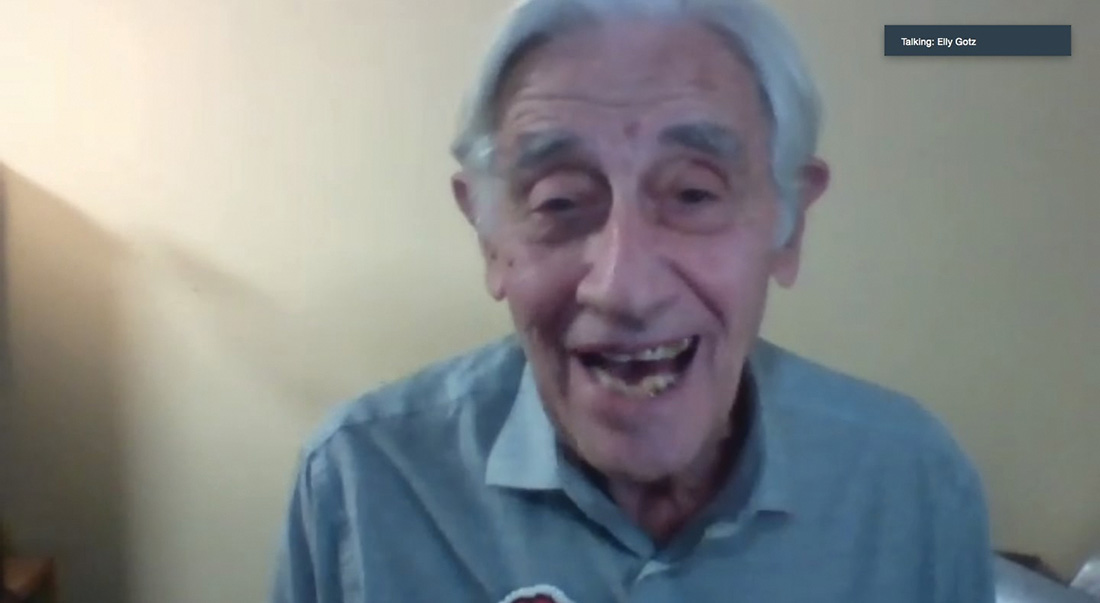Hillel Queen’s hosted Elly Gotz on Nov. 11 to tell the story of how he survived the Holocaust.
Gotz, who speaks to approximately 18,000 students every year, spoke about some of his experiences throughout the Holocaust, including time he spent living in a ghetto, as well as time in Dachau, a Nazi concentration camp just outside Munich.
He joined the Queen’s and Kingston communities at the event from Toronto.
“It’s wonderful to be here even though we are all locked up like birds in cages,” Gotz said, greeting attendees over video chat platform Zoom. “But it’s not too bad. We are in a free country, and we can make it. I was locked up for four long years during the war.”
READ MORE: Vigil held in memory of Anthony Aust
Gotz was born on March 8, 1928 in Kovno, Lithuania. As a young boy, he attended a Yiddish school where he developed a passion for science, math, history, and reading. He was 12 years old in 1940 when soldiers from the Soviet Union invaded Lithuania and declared that Jews were no longer to be considered Lithuanian citizens. One year later, the Nazis began their occupation of Lithuania and forced all 30,000 Jews living in Kovno to move into the Kovno ghetto.
Gotz and his family—his mother, father, aunt, uncle, and baby cousin—spent three years living in the Kovno ghetto. Throughout this time, his family bore witness to several atrocities committed against Lithuanian Jews by the Nazis. By 1944, just 8,000 Jews remained in the Kovno ghetto.
Gotz and his family eventually boarded a train in Kovno and were taken to concentration camps, with Gotz and his father being separated from his mother and taken to Dachau. Gotz and his father spent 10 months working in Dachau until the camp was liberated on April 29, 1945. Upon liberation, they were both reunited with his mother.
Despite disclosing several horrors to the audience, Gotz stressed the importance of relationships during the Holocaust.
“I survived and my father survived because we helped each other,” Gotz said. “Sometimes when we were ready to die, the thought that [our deaths] would cause pain to the other helped us to survive.”
READ MORE: Queen’s announces new strategies for prioritizing equity & diversity in undergraduate admissions
Gotz spoke to the importance of Holocaust education in his address, saying the Holocaust should be understood as a learning experience of what hatred can do.
“I want you to know what hatred does; genocide,” he said. “We thought after the Holocaust, there wouldn’t be any more. We were wrong. There are recent genocides in Rwanda, in Armenia, and in Bosnia. What is it with a world that we can’t live in peace with each other? What is it that we can hate?”
“We mustn’t be bystanders; when we see injustice, we must fight it.”
In an email interview with The Journal, Hillel Queen’s also noted the importance of Holocaust education at universities.
“Teaching and learning about the Holocaust highlights aspects of human behaviour that affect all societies, such as the susceptibility to scapegoating and the desire for simple answers to complex problems; the potential for extreme violence and the abuse of power; and the roles that fear, peer pressure, indifference, greed and resentment can play in social and political relations,” Yos Tarshish, assistant director of Hillel Queen’s, wrote.
“It also demonstrates the dangers of prejudice, discrimination and dehumanization, be it the antisemitism that fueled the Holocaust or other forms of racism and intolerance.”
Want to see more like this? Subscribe to our newsletter, Campus Catch-Up to receive regular updates right in your inbox.
Tags
Hillel Queen's, Holocaust, Remembrance Day
All final editorial decisions are made by the Editor(s)-in-Chief and/or the Managing Editor. Authors should not be contacted, targeted, or harassed under any circumstances. If you have any grievances with this article, please direct your comments to journal_editors@ams.queensu.ca.

